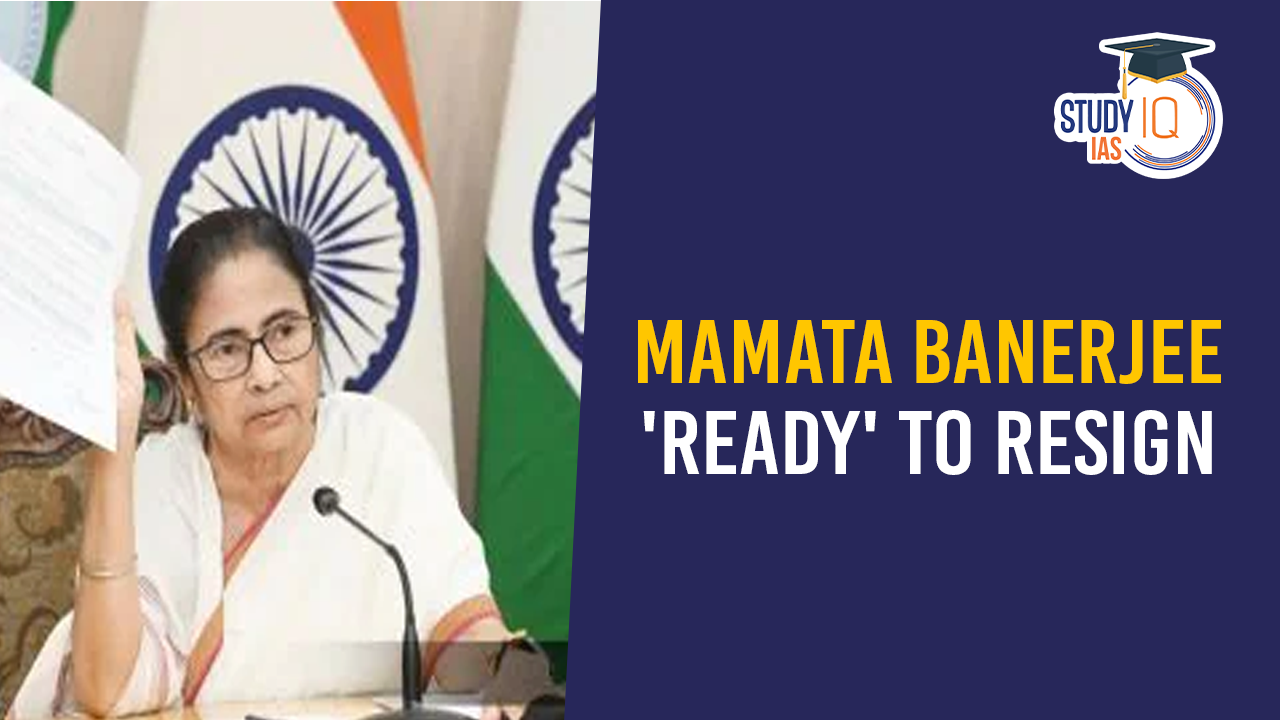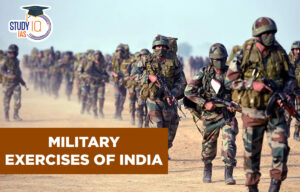Table of Contents
Mamata Banerjee, the Chief Minister of West Bengal, has recently offered to resign from her position, a development that has significant implications for the state’s political landscape. This article provides a comprehensive analysis of the situation, focusing on the political context, the reasons behind her resignation offer, and its potential impact on West Bengal’s governance and public administration. This detailed examination is especially relevant for UPSC aspirants who are studying political dynamics and administrative challenges in India.
Mamata Banerjee offers to resign as Chief Minister
Recently, Mamata Banerjee made headlines by offering to step down as the Chief Minister of West Bengal. Her resignation offer came amidst a backdrop of intense protests by junior doctors over a brutal rape and murder incident at RG Kar Medical College. The doctors’ protests, which have significantly disrupted medical services in the state, were a response to the perceived inadequacies in handling the incident and ensuring justice.
Key Reasons Behind the Resignation Offer of Mamata Banerjee
1. Protests by Junior Doctors
The immediate catalyst for Banerjee’s resignation offer was the ongoing protests by junior doctors. These protests began after a horrific rape and murder case at RG Kar Medical College. The medical community’s response highlighted the broader issues of safety and justice within the healthcare system. The doctors demanded immediate action and transparency from the state government, leading to a prolonged standoff.
2. Dispute Over Meeting Conditions
The conflict between the state government and the protesting doctors centered on the terms of a proposed meeting. The doctors insisted on live streaming the meeting to ensure transparency, while the government was willing to record it but not broadcast it live. This disagreement prevented the meeting from taking place and exacerbated the situation.
3. Supreme Court’s Directive
The Supreme Court had issued a directive for the protesting doctors to return to their duties. Despite this, the doctors remained on strike, leading to a healthcare crisis in West Bengal. Banerjee’s frustration with the lack of compliance with the court’s order and the ongoing disruption in medical services contributed to her decision to offer her resignation.
Mamata Banerjee’s Statement and Actions
Resignation Offer
In her press briefing, Mamata Banerjee stated, “I am ready to resign from the Chief Minister of West Bengal. I am not concerned about the post. I want justice; I am only concerned about justice getting served.” This statement reflects her willingness to prioritize the issue of justice over her political position.
Efforts to Resolve the Crisis
Banerjee revealed that she had made considerable efforts to resolve the situation. She waited three days for the doctors to engage in dialogue, even with high-ranking officials present. Despite her attempts, the doctors did not agree to meet under the proposed conditions, which further strained the situation.
Public Apology
Banerjee issued a public apology, addressing both the people of West Bengal and the broader public who were supporting the doctors. She emphasized that her primary concern was the welfare of the common people and the need for justice.
Government’s Response and Measures
Documentation Arrangements
The West Bengal government, led by Chief Secretary Manoj Pant, had arranged for the meeting to be recorded. Pant stressed that the government was committed to documenting the proceedings to ensure transparency. He expressed confusion over the doctors’ insistence on live streaming and emphasized that both parties shared the same objective of resolving the issue.
Trust and Transparency
Pant’s statements underscored the government’s stance on maintaining trust and transparency in negotiations. The refusal to live stream the meeting was viewed as a measure to ensure a constructive and focused discussion without public scrutiny.
Political and Administrative Implications
Impact on West Bengal Politics
Mamata Banerjee’s offer to resign has significant political implications. As a prominent leader in West Bengal, her departure would alter the political dynamics in the state. The Trinamool Congress (TMC), her party, may face challenges in maintaining its position and addressing the ongoing crisis.
Administrative Challenges
The situation highlights the challenges faced by the state administration in managing public protests and maintaining essential services. The disruption in medical services due to the doctors’ strike has exposed vulnerabilities in the healthcare system and raised questions about the effectiveness of crisis management strategies.
Legal and Judicial Considerations
The involvement of the Supreme Court in directing the doctors to resume their duties adds a legal dimension to the crisis. The failure to comply with the court’s order underscores the complexities of implementing judicial directives in a contentious environment.
Conclusion
Mamata Banerjee’s offer to resign as Chief Minister of West Bengal is a critical development with far-reaching implications. The ongoing doctors’ protests, the dispute over meeting conditions, and the Supreme Court’s directive all play a role in this complex political scenario. For UPSC aspirants, understanding this situation provides valuable insights into the interplay between politics, administration, and public unrest.


 Utkal Divas 2025: Odisha Foundation Day ...
Utkal Divas 2025: Odisha Foundation Day ...
 List of Military Exercises of India 2024...
List of Military Exercises of India 2024...
 GPS Spoofing and Its Impact in India: A ...
GPS Spoofing and Its Impact in India: A ...





















